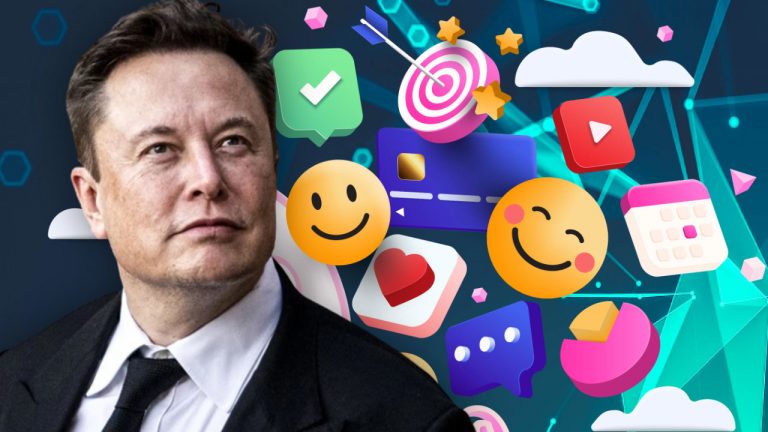
Apathy toward social media is growing with a recruiting dynamic that has drawn popular voices to jump the bandwagon of its criticism, and the idea of creating an alternative platform devoid of propaganda and censorship as a solution to social media platforms’ undoing.
The latest recruit is Elon Musk. Last week, the world’s richest man started a series of tweets accompanied by polls on Twitter, where he revealed that he is seriously thinking about starting a social media platform.
The SpaceX founder and CEO started the conversation with a poll asking whether Twitter algorithm should be open source. 82.7% of the 1.12 million responders voted yes at the close of the poll.
Register for Tekedia Mini-MBA edition 19 (Feb 9 – May 2, 2026): big discounts for early bird.
Tekedia AI in Business Masterclass opens registrations.
Join Tekedia Capital Syndicate and co-invest in great global startups.
Register for Tekedia AI Lab: From Technical Design to Deployment (next edition begins Jan 24 2026).
Twitter algorithm should be open source
— Elon Musk (@elonmusk) March 24, 2022
This was followed by another poll the next day. Musk tweeted that “Free speech is essential to a functioning democracy,” and then ask if people believed that Twitter was rigorously adhering to this principle. He then urged people to vote carefully as the consequences of the poll would be important. At the end of the voting session, 70.4% of the 2.04 million respondents said “No”.
Free speech is essential to a functioning democracy.
Do you believe Twitter rigorously adheres to this principle?
— Elon Musk (@elonmusk) March 25, 2022
He then went on to say that “Given that Twitter serves as the de facto public town square, failing to adhere to free speech principles fundamentally undermines democracy. What should be done?”
Given that Twitter serves as the de facto public town square, failing to adhere to free speech principles fundamentally undermines democracy.
What should be done? https://t.co/aPS9ycji37
— Elon Musk (@elonmusk) March 26, 2022
A couple of minutes later, Pranay Pathole, an Indian software developer asked the Tesla CEO if he would consider building a new social media platform, “One that would consist an open source algorithm, one where free speech and adhering to free speech is given top priority, one where propaganda is very minimal. I think that kind of a platform is needed.”
To this, he answered that he was “giving it a serious thought.”
https://twitter.com/PPathole/status/1507780749629730817?t=TLTc6_QiAoFXUucUHGDB-Q&s=19
Musk’s weekend conversation and polls on Twitter have resurrected a fresh discussion around freedom of speech, disinformation and hate speech that social media platforms have been continuously fingered as its enablers.
In January last year, Twitter, Facebook, Instagram and YouTube banned the accounts of former US president, Donald Trump, following the January 6 Capitol insurrection he was accused of stoking using social media. The ban drew mixed reaction, which mostly centered on free speech, around the world.
Last year, Nigeria’s president Muhammadu Buhari banned Twitter after his tweet was removed for violating Twitter policy. While his decision was widely condemned, it got a lot of support from many popular individuals, including Trump himself.
Trump’s attempt to strip social media platforms of some powers and to hold them responsible for activities on their platform, by amending section 230(c)(2), which provides immunity from civil liabilities for information service providers, allowing social media sites to remove or add warning labels to users’ posts or even suspend people who violate their rules, was vetoed by the Congress.
Since then, Trump has made two attempts to establish his own social media platform where he claimed people will have liberty to express themselves without being censored. The latest, Truth Social, has gained a lot of attention since it was announced, though people doubt that it will be anything near a platform of free speech since Trump himself is known for being intolerant to criticism.
Social media companies have found themselves in between the devil and deep blue sea. Many governments around the world are working to limit what everyone is allowed to post on social media, while outside the governments, the people don’t want to be censored on social media.
Besides governments’ pressure to control the narrative, social media is seen to be struggling to find a balance in an era of woke and cancel culture, where unnatural ideas are becoming a norm and people are not allowed to speak out against them. Many are accusing social media platforms of censorship while others say they have allowed users to create unhealthy environments in the name of free speech.
Musk’s revelation that he is “seriously” considering establishing a social media platform may be the disrupter that the industry should be wary of, especially Twitter, which is his platform of choice. But would it solve the problem? In a world where one man’s truth is another man’s lie, running a social media platform on uncontrolled freedom of speech beckons disaster.
Before succumbing to pressure to ban Trump from Facebook, CEO Mark Zuckerberg said that social media platforms shouldn’t act as arbiter of truth. He said that the first time Twitter affixed a label on Trump’s tweet, highlighting it as a potential lie. But with pressure piling up on social media as legislators and rights organizations step up efforts to stem online hate and disinformation, Facebook has updated its policy and has begun taking similar action against users.
Musk is currently worth a whopping $250 billion, weighs a huge social media influence and can easily create a successful social media platform. But will it be immune to regulatory influences? Will it not become a sanctuary for hate and bullying at the long run? It is believed that just like in Trump’s case, individuals’ idea of starting a social media platform is borne from the desire to promote what they believe in.



